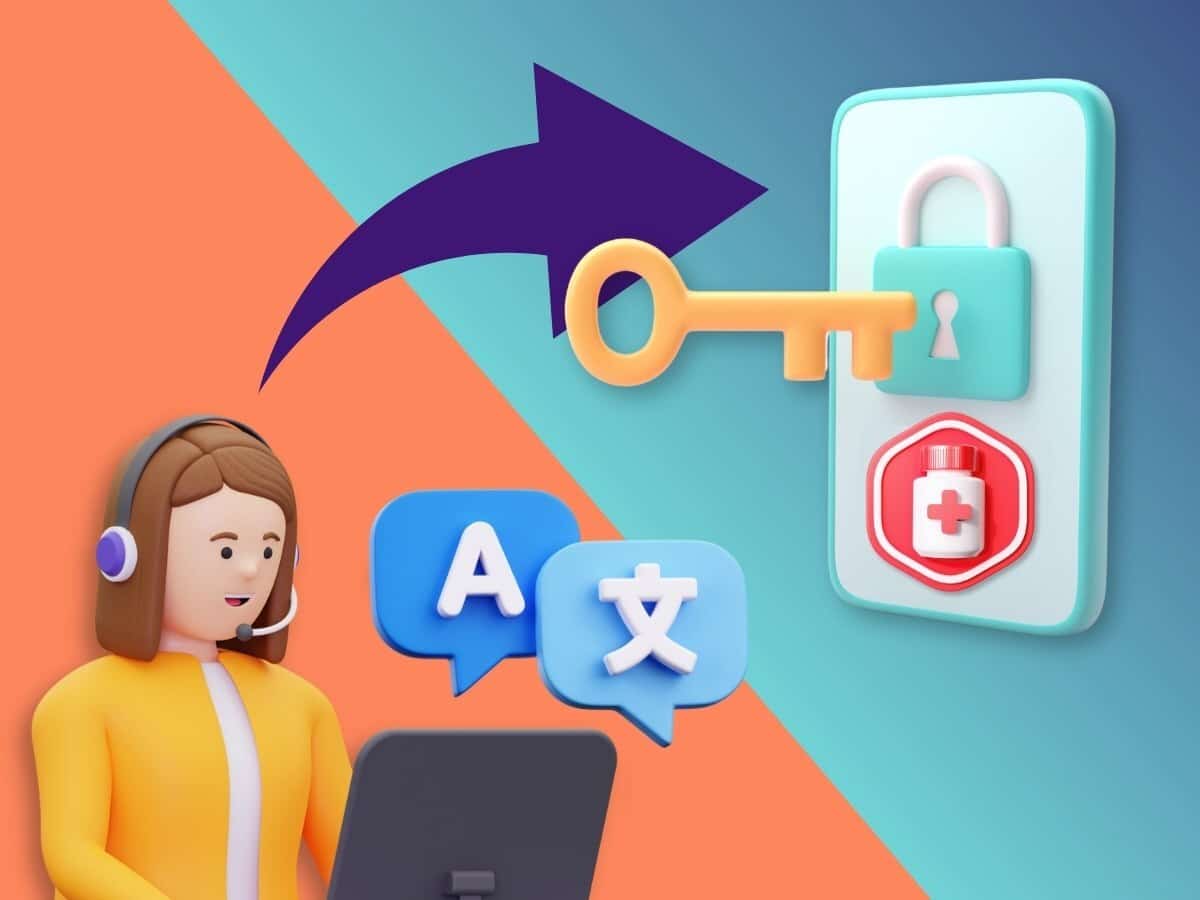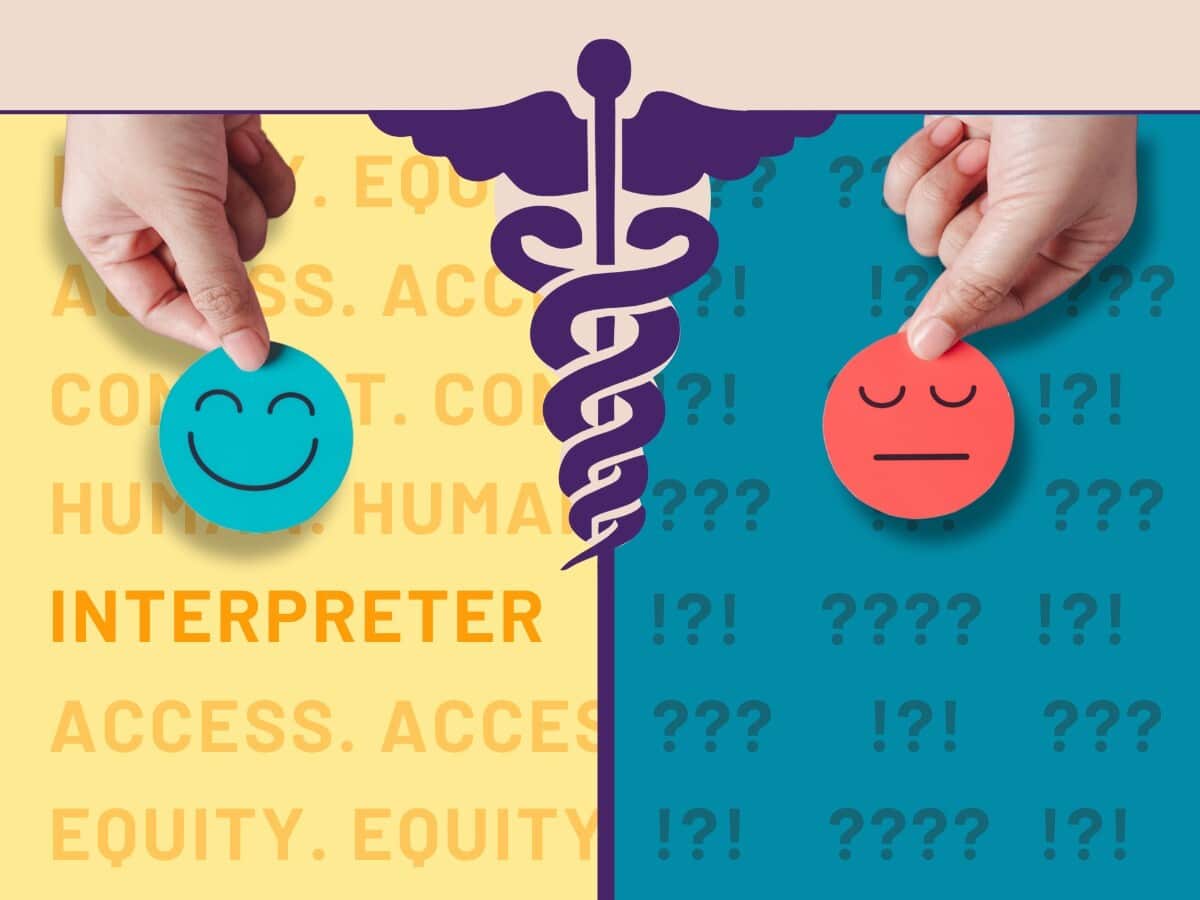Introduction: How Qualified Interpreters Impact Patient Outcomes
Qualified interpreters impact patient outcomes by facilitating accurate and culturally appropriate communication between patients and healthcare providers. They ensure that patients with limited English proficiency have equal access to quality healthcare by bridging the language gap. This leads to improved patient understanding, reduced medical errors, enhanced patient safety, and increased patient satisfaction. By prioritizing effective communication through the use of qualified medical interpreters, healthcare settings can significantly improve patient outcomes and deliver equitable care.
The Impact of Language Barriers on Patient Outcomes
Language barriers in a healthcare setting are all too common for patients with limited English proficiency. These language barriers can create real challenges for patients, including difficulties in accurately understanding and conveying medical information. This creates an increased risk of delayed or inadequate treatment. Miscommunications can also occur, and lead to medical errors and poor patient outcomes. Language barriers can also lead to reduced patient satisfaction and trust in the healthcare system, as well as limited access to appropriate healthcare services and resources all together. So what can be done?
The Role of Qualified Interpreters
A qualified medical interpreter is an individual who possesses the necessary language proficiency, cultural competence, and specialized training to effectively facilitate communication between patients and healthcare providers in a healthcare setting. Qualified medical interpreters can bridge the language gap and improve communication in healthcare settings by ensuring accurate and culturally appropriate exchanges of information, promoting understanding between patients and healthcare providers, and enhancing patient safety and satisfaction. The benefits of using qualified interpreters are numerous in terms of patient safety, quality of care, and patient satisfaction. Enhancing the relationship between the patient and healthcare provider is critical for positive patient outcomes.
Evidence on How Interpreters Impact Patient Outcomes
The use of professional interpreters in healthcare settings has been found to have a significant impact on improving the quality of healthcare for patients with limited English proficiency. As stated by a study published in the National Center for Biotechnology Information:
"We found that the use of professional interpreters is associated with improved quality of health care for patients with limited English proficiency." – Leah S Karliner, Elizabeth A Jacobs, Alice Hm Chen, and Sunita Mutha, via National Center for Biotechnology Information
This highlights the importance of utilizing qualified interpreters to bridge the language gap, create language access, and facilitate accurate communication between patients and healthcare providers. By ensuring accurate and culturally appropriate exchanges of information, qualified interpreters contribute to improved patient understanding, increased adherence to treatment plans, and enhanced patient satisfaction. They play a vital role in promoting patient safety, delivering equitable care, and ultimately improving patient outcomes in healthcare settings.
Best Practices for Using Qualified Interpreters
High-qualified interpreting in healthcare settings is crucial for ensuring effective communication and improving patient outcomes. To implement best practices for using qualified interpreters, healthcare providers should prioritize training and certification for interpreters. By ensuring that interpreters have the necessary language proficiency and cultural competence, healthcare settings can enhance the accuracy and appropriateness of communication between patients and providers.
Another important aspect of using qualified interpreters is recognizing that different healthcare settings may require different approaches. Healthcare providers should be aware of the specific needs and considerations when utilizing interpreters in various contexts, such as hospitals, clinics, or telehealth appointments. This includes understanding the logistics of interpreter services, such as scheduling and coordinating interpreter availability, to ensure seamless communication between patients and providers.
Furthermore, promoting cultural competence and patient-centered care through interpreter services is key. Interpreters should be trained to navigate cultural nuances and sensitivities, ensuring that patients' cultural backgrounds are respected and integrated into their care. This approach fosters trust and creates a good rapport between patients and providers. This ultimately contributes to how interpreters impact patient outcomes - by improving them.
Conclusion
Qualified interpreters can not only help improve patient satisfaction by providing accurate and effective communication, they can also help improve patient outcomes by improving patient understanding, reducing medical errors, and enhancing patient safety. Language barriers can make things more challenging for patients who do not speak the same language as their healthcare providers. By using qualified interpreters, however, these language gaps can be bridged to create a better healthcare journey for the patient, resulting in improved patient satisfaction and improved patient outcomes.









